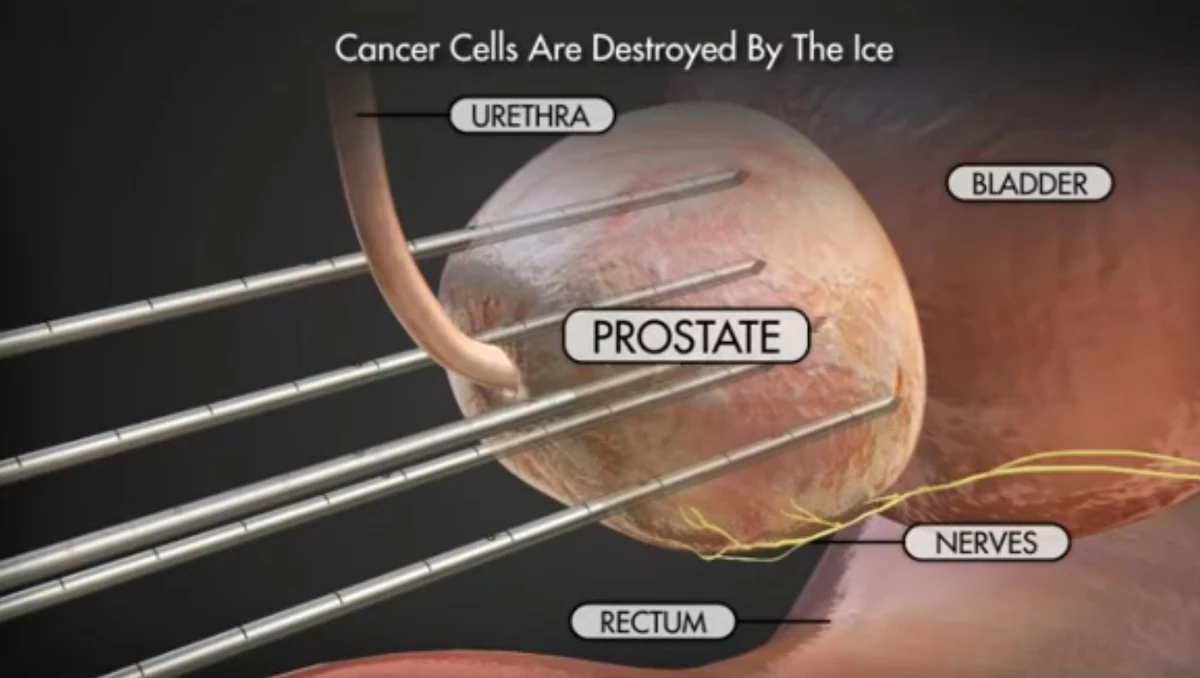
Complementary Therapies
for Prostate Cancer
What you’ll find here: a practical guide to complementary therapies that you can add to your main cancer treatment. These were either shown in studies to increase survival in cancer patients or recommended by long-term survivors or cancer experts.
“Healing does not happen in a doctor’s office, it happens at home.“
Junnifer Simmons M.D
Many people have survived cancer against all the odds. Here’s how some of them did it.

For her ground-breaking book Radical Remission: Surviving Cancer Against All Odds Dr Kelly Turner, PhD studied over 1000 cases of people who recovered from cancer against all odds. She found 10 key factors that most of these people used to get better. These 10 key factors are also included below.
Before starting treatment
If you haven’t started treatment yet (or just started recently) please see Before starting treatment page for helpful tips.
See also:
Standard tests and treatments for Prostate Cancer
Lates info on Prostate Cancer.
Jump to:
Add off-label anti-cancer Drugs
Heal Your Body, Mind, Spirit.
Start Daily Physical Exercise (if possible)

✓ Studies have shown that this extends survival in cancer patients.
✓ One of the 10 key healing factors identified by Dr Kelly Turner
Exercise improves cancer survival
Limited evidence from a few epidemiologic studies has suggested a possible link between physical activity and better outcomes among men diagnosed with prostate cancer.
In one study, men with nonmetastatic prostate cancer who engaged in vigorous activity for at least 3 hours per week had a 61% lower risk of death from prostate cancer compared with men who engaged in vigorous activity for less than 1 hour per week.
Radically change your Diet

✓ Studies have shown that this extends survival in cancer patients.
✓ One of the 10 key healing factors identified by Dr Kelly Turner
Why a plant-based diet is critical for survival
Cancer Stem Cells are the only cells that can give rise to new tumors. There is no known way of eliminating them medically. This is why cancers usually recur (come back). However, Dr Young S. Kim, a scientist at the National Cancer Institute in the US showed that poor diet causes cancer stem cells to regrow while a good diet could stop that regrowth.
A good diet reduces recurrence and improves survival
In 2005, Dr. Dean Ornish MD conducted an interventional study with 93 patients PROVING that you can reverse the progression of early stage prostate cancer with a plant-based diet, exercise, and stress reduction.
INTENSIVE LIFESTYLE CHANGES MAY AFFECT THE PROGRESSION OF PROSTATE CANCER
Therefore, this lifestyle intervention may have benefits beyond any possible favorable effects on the progression of prostate cancer. In addition, since there is a significant rate of recurrence following any conventional treatment for prostate cancer, our findings may encourage some patients to make changes in diet and lifestyle as an adjunct to conventional treatment in the hope of decreasing the risk of recurrence.
Harvard Medical School says lifestyle changes may slow the growth of prostate cancer cells. Here are some examples.
A 2004 Harvard study of 675 men with treated prostate cancer linked a high consumption of fish with a reduced risk of recurrent or progressive cancer.
A 2006 Harvard study of 1,202 men with localized prostate cancer suggested that the consumption of fish and tomato sauce may offer some protection against disease progression.
Add Herbs, Plant Extracts, and Supplements

✓ Studies have shown that this extends survival in cancer patients.
✓ One of the 10 key healing factors identified by Dr Kelly Turner
Curcumin (Supplement) improves survival
This Systematic Review of 22 studies concluded: In several other studies, it was reported that curcumin has increased patient survival.
Broccoli sprouts improves survival
This 2019 study says analysis revealed a higher survival rate.
Fish oil and Glucosamine improves survival
This large prospective cohort study with 14,920 participants showed that the use of fish oil and glucosamine was associated with decreased all-cause mortality and cancer mortality among patients with cancer.
Melatonin improves survival
In this study, 250 metastatic cancer patients received Melatonin plus chemo, or chemo alone. The 1-year survival rate was significantly higher in patients treated with Melatonin.
Melatonin increases survival by more than twice in patients with poor prognosis:
This retrospective study included 955 patients of various stages of prostate cancer (PCa) who received combined hormone radiation treatment from 2000 to 2019.
In the poor prognosis group, the median overall survival in patients taking the drug was 153.5 months versus 64.0 months in patients not using it. In a multivariate analysis, melatonin administration proved to be an independent prognostic factor and reduced the risk of death of PCa patients by more than twice.
Paw Paw Cell-Reg (PawPaw extract) improves survival
In this study of 94 patients with stage 4 cancer resulted in inhibition of further metastases and increased duration of survival.
Lycopene
Lycopene and prostate cancer
Lycopene is a natural antioxidant that gives tomatoes, watermelon, and pink grapefruit their red color. Epidemiological studies have shown that high intake of lycopene-containing vegetables is inversely associated with the incidence of certain types of cancer, including cancer of the digestive tract, prostate and cervix.
A combination of vitamin E, selenium, and lycopene has been shown to dramatically inhibit prostate cancer development and to increase disease-free survival according to this study
In this review, the authors highlight the remarkable ability of phytochemicals such as lycopene to decrease the replicative capacity of Cancer Stem Cells.
Flaxseed plus low fat diet
This study found that prostate cancer patients on a flaxseed and low fat diet for 30 days before surgery had significantly lower proliferation rates than other patients who were not on the protocol.
Phellinus linteus
Phellinus linteus is a well-known Oriental medicinal fungus with a variety of biological activities, including immunomodulatory or direct antitumor activities, according to this study. Its extracts demonstrated tumor regression in three independent case reports…
We encountered a case of advanced prostate cancer that became resistant to all kinds of hormonal and radiation therapy, but improved dramatically with oral intake of an extract from the mushroom, Phellinus linteus, say the authors of this study.
Resveratrol
This study says:
Here we provide the first evidence that dietary agents, namely, epigallocatechin gallate, resveratrol, or a mixture of polyphenols from green tea (polyphenon E) or grapevine extract (vineatrol), impede prostate cancer cell growth in vitro and in vivo…
Berberine
Berberine and prostate cancer:
This study says: We concluded that berberine should be developed as a pharmacological agent for use in combination with other anticancer drug for treating metastatic prostate cancer.
Other supplements with multiple anti-cancer properties:
Matcha Green Tea Epigallocatechin gallate (EGCG))
Quercetin
Omega-3 fatty acids (DHA/EPA)
Heal Emotionally and Spiritually

✓ Studies have shown that these extends survival in cancer patients.
✓ One of the 10 key healing factors identified by Dr Kelly Turner
Increase positive emotions to improve survival
Several studies have shown that a positive attitude or emotional state can boost your chances of surviving cancer. In one study, among patients with metastatic cancers, those who expressed greater hope at the time of their diagnosis survived longer.

Release suppressed emotions to improve survival
Research is quite clear that suppressed emotions not only contribute to the development of cancer, but they can also lead to worse prognosis and more aggressive cancers.
This study concluded: Emotion suppression may convey risk for earlier death, including death from cancer.
This Review Article noted:
There is evidence to show that suppressed anger can be a precursor to the development of cancer, and also a factor in its progression after diagnosis.

Deepen your spiritual connection to improve survival
Research shows that in cancer care, being spiritual can have a powerful positive effect on your outcome.
The authors of this study of 2,638 patients treated at 37 palliative care units said their findings suggest the possibility of a positive relationship between spiritual care and survival time in patients with far advanced cancer.

Take control of your health
✓ One of the 10 key healing factors identified by Dr Kelly Turner
Studies suggest that people who take control of their physical, mental, and spiritual health tend to live longer.

Have strong reasons for living
✓ One of the 10 key healing factors identified by Dr Kelly Turner
A strong reason to live – like wanting to see your children grow up – can affect your mental state and survival.

Follow your Intuition
✓ One of the 10 key healing factors identified by Dr Kelly Turner
Intuition (a hunch) is the ability to understand something instinctively. It can save your life if you follow it.

Address Parasites, Bacteria, and Viruses
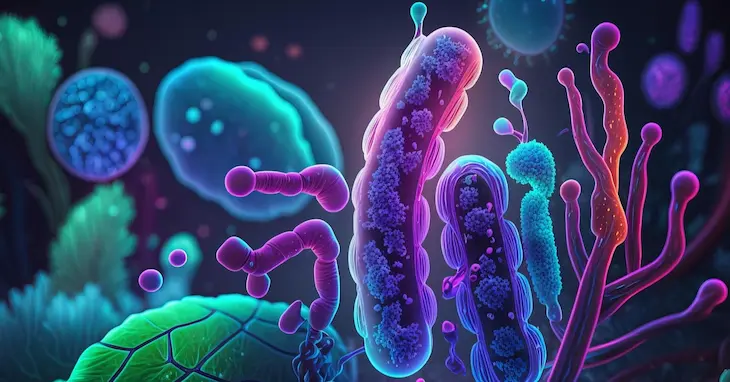
✓ Studies have shown that this extends survival in cancer patients.
The National Cancer Institute says: Certain infectious agents, including viruses, bacteria, and parasites, can cause cancer or increase the risk that cancer will form. Some viruses can disrupt signaling that normally keeps cell growth and proliferation in check. Also, some infections weaken the immune system, making the body less able to fight off other cancer-causing infections.
NOTE: There is real scientific and public interest in Ivermectin, Fenbendazole, and Mebendazole but the human data are early and limited. They are included here because there is a lot of anecdotal evidence that they are effective anti-cancer treatments.
Ivermectin
Ivermectin is a broad-spectrum anti-parasitic agent…Over the past few years, there have been steadily increasing reports that ivermectin may have varying uses as an anti-cancer agent, as it has been shown to exhibit both anti-cancer and anti-cancer stem cell properties. – The Journal of Antibiotics
Fenbendazole
Fenbendazole is used to treat parasites. This 2024 study states: With its high safety profile, affordability, and minimal side effects, fenbendazole stands out as a potential option for cancer therapy. Furthermore, by inhibiting glycolysis in cancer cells and preventing lactate buildup, fenbendazole surpasses albendazole and mebendazole in treating drug-resistant cells, making it the benzimidazole of choice for cancer therapy.
Mebendazole
Mebendazole is used to treat infections caused by worms, sold under the brand name Vermox This is from a 2023 study: Mebendazole can penetrate the blood–brain barrier and has been shown to inhibit the malignant progression of glioma by targeting signaling pathways related to cell proliferation, apoptosis, or invasion/migration, or by increasing the sensitivity of glioma cells to conventional chemotherapy or radiotherapy. Moreover, several preclinical models and ongoing clinical trials explore the efficacy of Mebendazole in multiple cancers, including acute myeloid leukemia, brain cancer, oropharyngeal squamous cell carcinoma, breast cancer, gastrointestinal cancer, lung carcinoma, adrenocortical carcinoma, prostate cancer, and head and neck cancer.
Artemisinin
This study says: Experimental evidences suggest that artemisinin compounds may be a therapeutic alternative in highly aggressive cancers with rapid dissemination, without developing drug resistance. They also exhibit synergism with other anticancer drugs with no increased toxicity toward normal cells. It has been found that semisynthetic artemisinin derivatives have much higher antitumor activity than their monomeric counterparts via mechanisms like apoptosis, arrest of cell cycle.
This study says: Taken together, our results suggest that artemisinin is a very potent anti-cancer compound that exhibits unique effects on the cell cycle regulation of human prostate cancer cells.
Practice Fasting

✓ Studies have shown that this extends survival in cancer patients.
In Effect of fasting on cancer: A narrative review of scientific evidence the authors say:
Emerging evidence suggests that fasting could play a key role in cancer treatment by fostering conditions that limit cancer cells’ adaptability, survival, and growth. Fasting could increase the effectiveness of cancer treatments and limit adverse events…We recommend combining prolonged periodic fasting with a standard conventional therapeutic approach to promote cancer‐free survival, treatment efficacy and reduce side effects in cancer patients.
Heal your gut
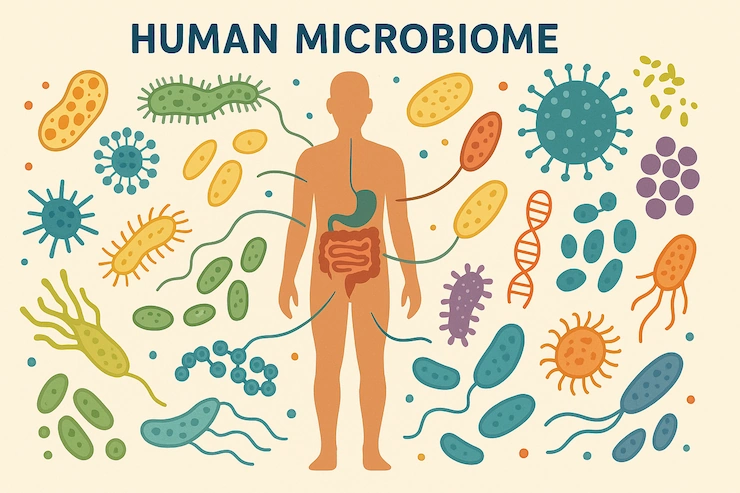
✓ Studies have shown that this extends survival in cancer patients.
All illness starts in the gut
The Human Microbiome Project (40 Medical Schools, 200 scientists, 3 years, $178 million) concluded,: your gut bacteria get ill first, then you get ill. And you can’t get fully better, until they get better.
According to this study, cancer patients run a great risk of developing enteroparasitic infections, as they are more susceptible to opportunistic agents due to anticancer treatment and are already immunocompromised because of the disease itself. These opportunistic infections are usually more severe in this group of individuals, and may even lead to fatal complications. Of the 73 participants in the study, 45 (61.6%) were positive for one or more parasitic species…
This Review says the last decade has demonstrated the importance of the Gut Microbiome on cancer pathogenesis, progression, sustenance and treatment outcomes.
Boost your Immunity – most cancer types
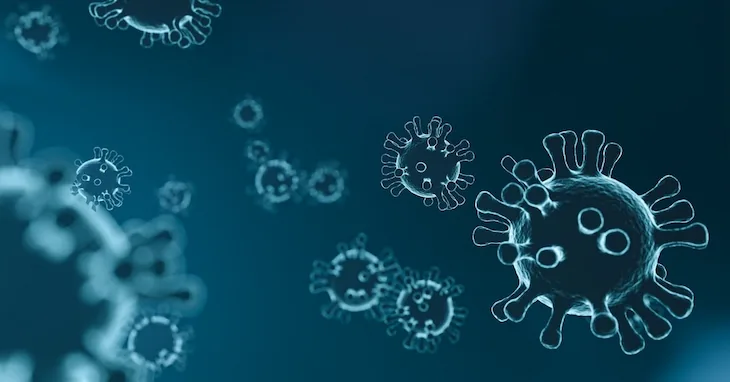
✓ Studies have shown that this extends survival in cancer patients.
A good immune system can work for or against you!
This 2019 study by Yuexin Liu, MD Anderson Cancer Center looked at the effect pre-existing immune conditions had on cancer. A total of 10,062 PanCanAtlas tumor samples had both gene expression and survival data, covering 32 different cancer types.
The results showed that in the majority of human cancers, higher immune response was significantly associated with better Overall Survival, Progression Free Interval, or both, which was in agreement with previous reports that pre-existing immunity is probably necessary for most treatment response.
The study also demonstrated that in some cancer types higher immune response is significantly associated with worse outcome.
Get lots of sunshine / boost your vitamin D

✓ Studies have shown that this extends survival in cancer patients.
Research shows Vitamin D can:
•Prolongs Survival
•Boosts Immunity
•Sensitise cancer cells to radiation
•Target cancer stem cells in the lab
This study says: Epidemiological data indicate that low vitamin D levels may play a role in the genesis and progression of breast, lung, colorectal and prostate cancer, as well as malignant lymphoma and melanoma.
Note: Chemo depletes Vitamin D levels so 10,000 IUs daily is recommended for cancer patients – ask your doctor first.
Embrace Social Support

✓ One of the 10 key healing factors identified by Dr Kelly Turner
Social support: A network of family, friends, neighbors, and community members that is available in times of need to give psychological, physical, and financial help.
When cancer patients seek and receive help from family and others, they often find it easier to cope during illness.
This study says: Research suggests that social support has an impact on physical health, well-being and adjustment to cancer of cancer patients.
![]()
Identify and remove your cancer’s fuel

✓ Studies have shown that this extends survival in cancer patients.
Diet and Lifestyle are among the causes of up to 90 percent of cancers, according to this paper published in the prestigious journal Nature.
The following may be causing or feeding your cancer:
Parasites, Bacteria, and Viruses
Toxins in your body, air. food, water
Geopathic stress
Grief, Distress, or other emotional turmoil
Toxic Relationships
Maintain a healthy weight

✓ Studies have shown that this extends survival in cancer patients.
How does obesity affect cancer survivorship?
The National Cancer Institute says: Research indicates that obesity may worsen several aspects of cancer survivorship, including quality of life, cancer recurrence, cancer progression, and prognosis (survival).
Add Anti-cancer Therapies
IV Vitamin C Therapy
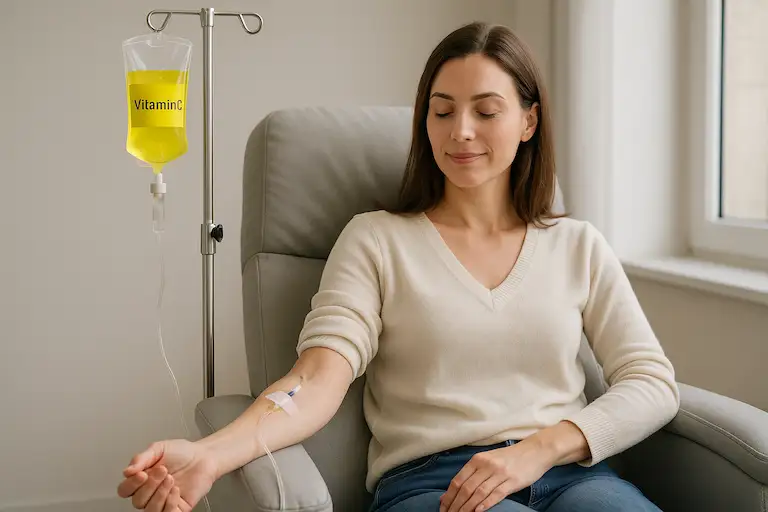
✓ Studies have shown that this extends survival in cancer patients.
This Study (Drs. Cameron and Pauling) states:
A study has been made of the survival times of 100 terminal cancer patients who were given supplemental ascorbate, usually 10 g/day, as part of their routine management and 1000 matched controls, similar patients who had received the same treatment except for the ascorbate…
The ascorbate-treated patients were found to have a mean survival time about 300 days greater than that of the controls.
This 2022 study says Ascorbic acid may become a significant treatment option in the fight against cancer, due to its widespread availability in nature, minimal toxicity, and low cost.
This study says:
In summary, our analysis of data from cancer patients given IVC, along with our tests of cytokine levels, suggest that IVC may reduce inflammation in cancer patients, and that this reduction in inflammation is correlated with reductions in the tumour markers PSA.
Hyperbaric Oxygen Therapy

✓ Studies have shown that this extends survival in cancer patients.
National Cancer Institute says: In medicine, breathing hyperbaric oxygen increases the amount of oxygen in the body…It is being studied in the treatment of some types of cancer. Hyperbaric oxygen may increase the amount of oxygen in cancer cells, which may make them easier to kill with radiation therapy and chemotherapy.
This study says: We conclude that the administration of HBO can provide many clinical benefits in the treatment of tumors, including management of highly malignant gliomas. Applied immediately before irradiation, it is safe and well tolerated by patients, causing rare and limited side effects.
This study found: Despite the fact that behavior and prognosis of the triple positive and negative subtypes of cancer are different, the HBOT had a similar suppressive effect on tumor growth, indicating that they share a common oxygen dependent anti-tumor mechanism…HBOT significantly reduced both numbers and total area of the metastatic lesions…
Chemo drugs – contraindications
This Study says: It is, however, important to underline that Mayer et al. list up five chemotherapeutic agents (doxorubicin, bleomycin, disulfiram, cisplatin, and mafenide acetate); all of which are strongly contradictory in combination with HBO due to potential potentiation of toxicity.
Traditional Chinese Medicine (TCM)

✓ Studies have shown that this extends survival in cancer patients.
A large scale review of research by Australia and Chinese University scientists has proved with thousands of studies using hundreds of thousands of cancer patients that Chinese herbal medicine offers significant treatment for most types of cancers.
In this study, 1132 patients with prostate cancer were enrolled.
Compared with TCM nonusers, patients who use TCM for more than 50 days have a lower risk of death. The risk of death in patients who used TCM for 50 to 200 days and ≧200 days decreased by 31% and 39%, respectively.
Stimulate your Vagus nerve
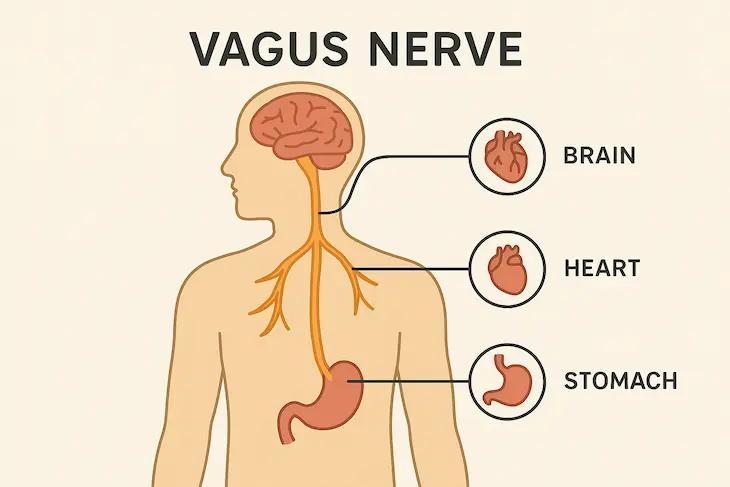
✓ Studies have shown that this extends survival in cancer patients.
The vagal nerves carry signals between your brain, heart and digestive system. They’re a key part of your parasympathetic nervous system.
Vagus Nerve Stimulation
Source: 2023 Review article published in Cancer Medicine. Vagus nerve stimulation (VNS) is any method such as the use of electrical current, manual touch, mindfulness meditation, or deep breathing exercise to stimulate the branches of vagus nerve.
High vagal activity is related to good prognosis and increased chance of survival in patients with various forms of cancers such as colon, pancreatic, lung, and breast cancers.
This is because high vagal activity inhibits sympathetic nervous system activity. In contrast, the absence of vagal nerve activity promotes tumor growth and reduces cell survival, which in turn promotes invasion and migration of cancer cells.
Therapies to reduce your risk of Cachexia

✓ Studies have shown that this extends survival in cancer patients.
Cachexia affects 50–80% of advanced cancer patients, with currently no effective treatments. Cachexia is defined by loss of muscle function and muscle mass, loss of body weight, and increased fatigue and weakness.
This results in diminished physical activity, reduced tolerance to anticancer therapies and overall increased death (By some estimates, nearly one-third of cancer deaths are caused by cachexia, according to the National Cancer Institute).
Here are some products that have been shown to extend cancer survival in patients.
AHCC
Melatonin (study)
Omega 3 Fatty Acids (study)
Pomegranate (study)
Supplements containing n-3 polyunsaturated fatty acids (study)
✓ MORE THERAPIES AVAILABLE IN CLINICS OUTSIDE IRELAND
Add Off-label anti-cancer Drugs
Off-label drugs
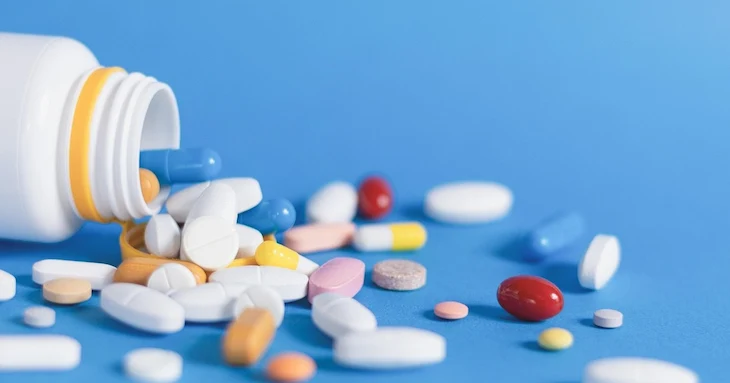
Note: Off-label drugs are drugs that are used for a disease or condition other than the one they were originally approved for. For example, Metformin was originally approved to treat 2 diabetes but is also used off-label to treat cancer.
Statins
✓ Studies have shown that this extends survival in cancer patients.
Statin drugs can lower cholesterol and triglycerides.
The effects of cholesterol on cancer survival for a number of cancers is shown in this study.
Study Individual and joint effects of metformin and statins on mortality among patients with high-risk prostate cancer
Based on 12 700 patients with high-risk PCa [prostate cancer] , statin alone or in combination with metformin was significantly associated with reduced all-cause mortality … and PCa mortality…. The effects were more pronounced in post-diagnostic users: combination use of metformin/statins was associated with a 32% reduction in all-cause mortality, and 54% reduction in PCa mortality.
Aspirin
✓ Studies have shown that this extends survival in cancer patients.
This 2023 Meta Analysis says:
Meta-analyses of 118 observational studies of mortality in cancer patients give evidence consistent with reductions of about 20% in mortality associated with aspirin use.
A 27 year study of 22,071 male physicians
Regular aspirin use after diagnosis of prostate cancer is associated with a decreased risk of prostate cancer mortality and metastases, according to new data published in Oncology Times.
“Among men with prostate cancer, regular aspirin use after diagnosis was associated with a 39 percent decreased risk of dying from prostate cancer,” said Brian Allard, MD, Urologic Oncology Fellow at Brigham and Women’s Hospital and Massachusetts General Hospital in Boston, Massachusetts, the study’s first author.
An article in Oncology Times reported on a study involving 3,193 patients: Regular aspirin use after diagnosis of prostate cancer is associated with a decreased risk of prostate cancer mortality and metastases, according to new data from the large observational Physicians’ Health Study (1982-2009) reported at the 2016 Genitourinary Cancers Symposium (Abstract 306). “Among men with prostate cancer, regular aspirin use after diagnosis was associated with a 39 percent decreased risk of dying from prostate cancer,” Laboratory studies show that Aspirin can target cancer stem cells.
Itraconazole
✓ Studies have shown that this extends survival in cancer patients.
Itraconazole is a medication used in the management and treatment of fungal infections.
According to Repurposing Drugs in Oncology (ReDO), Clinical trials have shown that patients with prostate, lung, and basal cell carcinoma have benefited from treatment with itraconazole, and there are additional reports of activity in leukaemia, ovarian, breast, and pancreatic cancers…There is evidence that that it may also be applicable to a number of other cancers, including glioblastoma, breast, pancreatic, and ovarian.
Beta-blockers
✓ Studies have shown that this extends survival in cancer patients.
This meta-analysis of twelve studies involving 20,898 subjects provides evidence that beta blocker use can be associated with the prolonged survival of cancer patients, especially patients with early-stage cancer treated primarily with surgery.
Propranolol This study concluded…we observed reduced cancer-specific mortality among prostate cancer patients taking beta-blockers. However, we did not observe any effect of beta-blocker use on all-cause mortality in this meta-analysis. Taken together with studies in other cancer types and in preclinical models, our findings indicate a beneficial effect of beta-blockers on survival in patients with prostate cancer. Therefore, beta-blockers may be considered a promising therapeutic approach for adjuvant therapy in prostate cancer.
Metformin (type 2 diabetes drug)
✓ Studies have shown that this extends survival in cancer patients.
For men with early-stage prostate cancer, metformin was associated with significant, or borderline significant, benefits in all outcomes. The data suggest that prostate cancer patients treated with radical radiotherapy may benefit more from metformin.
Anti-parasite drug, nitazoxanide (NTZ)
Source: Labiotech.eu
A widely used anti-parasite drug, nitazoxanide (NTZ), is able to break down a protein called beta-catenin, which is found at high levels in prostate and colon cancer cells and supports their growth and survival. This opens up the possibility of repurposing the drug for the treatment of these cancers.
This 2023 study concluded:
NTZ is a potential therapeutic agent for bone metastasis induced by the TGF-β/Ac-KLF5 signaling axis in prostate cancer and likely other cancers.
Sodium Dichloroacetate
FOR PATIENTS WITH LIMITED OPTIONS
This study says: Observational data collected from more than 300 cancer patients with advanced disease revealed measurable benefits from DCA therapy in 60%-70% of cases…Based on our clinical experience, combined with existing publications, off-label DCA therapy is an option for patients with limited available conventional treatments, once they understand and accept the risks and benefits of therapy.
This study says: Interestingly, DCA could significantly affect cancer stem cell fraction and contribute to cancer eradication.
Cesium Chloride (inorganic compound)
FOR PATIENTS WITH LIMITED OPTIONS
This study reports on 50 patients treated with Cesium. An impressive 50% recovered from various cancers, i.e., cancer of unknown primary, breast, colon, prostate, pancreas, lung, liver, lymphoma, ewing sarcoma of the pelvis and adeno-cancer of the gallbladder. A consistent finding in these patients was the disappearance of pain within the initial 3 days of Cs-treatment.
This study warns:
Cesium chloride, which is used as alternative therapy by some cancer patients, has been determined to have significant adverse effects, especially cardiovascular effects.
How to access off-label drugs
If you can’t get a prescription or the drugs you need, try Dickson Chemist in the UK. They ship to all EU countries.
Kill Cancer Stem Cells & Clear Senescent Cancer Cells
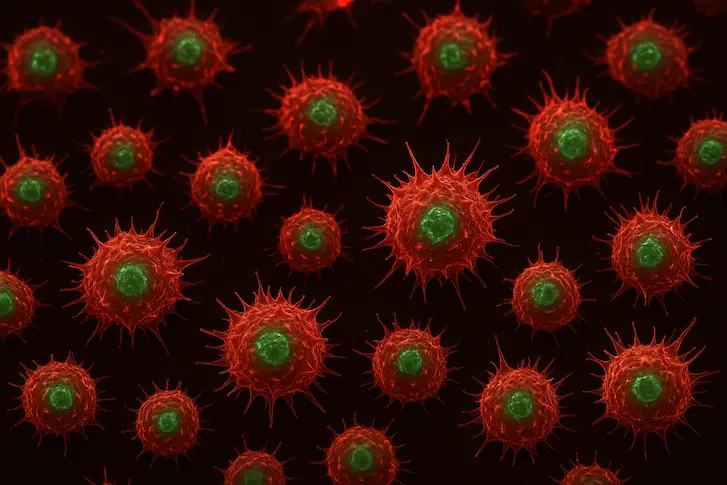
Why are Cancer Stem Cells and Senescent Cancer Cells so important?
According to this 2020 study: Cancer stem cells (CSCs) contribute to the initiation, recurrence, and metastasis of cancer; however, there are still no drugs targeting CSCs in clinical application.
Most metastases are caused by Cancer Stem Cells (CSCs).
CSCs have been shown in numerous cancer models to be involved in tumor development, cell proliferation, and metastatic dissemination, while possessing a capacity for sustained self-renewal. CSCs, which typically represent a small proportion of total cells of a given tumor, also exhibit resistance to chemotherapy and radiotherapy. Indeed, exposure to these treatments may promote “stemness” in – cancer cells, which may explain why successful therapeutic reduction of tumor bulk will often fail to produce clinical improvement, says this 2016 study.
Compounds that can kill cancer stem cells include:
Curcumin
Lycopene
Green Tea
CLEAR SENESCENT CANCER CELLS
Senescent cells are unique in that they eventually stop multiplying but don’t die off when they should. (source)
According to this 2020 Review in Trends in Cancer, a significant number of commonly used cancer interventions have been associated with the induction of cellular senescence in either tumor or non-tumor cells and tissues.
Therapy-induced senescence can cause cancer metastasis and relapse and several adverse reactions to cancer treatments.
How can we target Senescent Cancer Cells?
Extra steps you can take
Extra steps towards better health

Get Grounded (beach is great)
The terms “earthing” and “grounding” is simply the act of placing your bare feet on the earth, or walking barefoot. According to this 2020 study, grounding: Connects people to the Earth’s natural healing energy;
Reduces inflammation, pain, and stress; Improves blood flow, sleep, and vitality.
Start Juicing
Why? Green Juicing floods your cells with nutrition almost instantly and is a vital part of the recovery process as well as stopping cancer production in your body.
Stay Hydrated
Cancer patients are at high risk for dehydration from both the disease and the treatment, according to this study The American Oncology Institute warns that if a cancer patient becomes dehydrated during their treatment, side effects may become even more severe.
Ensure Your Blood Oxygen Saturation level is >98%
Why? Oxygen-Starved Tumor Cells Have Survival Advantage That Promotes Cancer Spread.
Monitor Homocysteine Levels
This 2021 article Hyperhomocysteinemia and Cancer: The Role of Natural Products and Nutritional Interventions says:
Various clinical trials have shown that the oral supplementation of folic acid, B6, and B12 vitamins significantly lowers circulating homocysteine levels…
Detox your body
Two proven methods of detoxification include Strenuous Exercise and Safe removal of root canals and amalgams. The latter is crucial if you have cancer.
Get your home tested for Geopathic Stress
Geopathic stress is a natural phenomenon which affects certain places and can be damaging to human health. If people sleep on such stress zones, they are susceptible to various diseases like cancer.
On completion of your standard treatment you might want to consider a liver cleanse because toxins from treatment can damage your liver and ultimately reduce survival time.
Taking supplemental antioxidants during chemo or radiotherapy.
Some oncologists discourage the use of supplemental antioxidants claiming they could interfere with treatment. However, the opposite is actually the case.
For example, this study concluded: 280 peer-reviewed in vitro and in vivo studies, including 50 human studies involving 8,521 patients, 5,081 of whom were given nutrients, have consistently shown that non-prescription antioxidants and other nutrients do not interfere with therapeutic modalities for cancer. Furthermore, they enhance the killing of therapeutic modalities for cancer, decrease their side effects, and protect normal tissue. In 15 human studies, 3,738 patients who took non-prescription antioxidants and other nutrients actually had increased survival.
This Systematic Review of 19 trials evaluating the effects of Antioxidants concluded: None of the trials reported evidence of significant decreases in efficacy from antioxidant supplementation during chemotherapy. Many of the studies indicated that antioxidant supplementation resulted in either increased survival times, increased tumor responses, or both, as well as fewer toxicities than controls…
This study concluded: Hypotheses that antioxidants’ inhibition of free-radical activity may negate cytotoxic properties of some cancer therapies have been dependent on naive and inaccurate assumptions. The available data suggest a rational basis for the continued use of selected antioxidant agents as therapeutic adjuncts in cancer therapy…
Cancer Survival Tips from a medical doctor and recovered cancer patient – 4 mins
Cancer Survival Tips from a recovered cancer patient – 2 minutes
See also Alternative treatments
- Antineoplastons
- Budwig Protocol
- Cannabil Oil
- Care Oncology Clinic Protocol
- Cell Suppression Theory – Treatment Protocol
- Fenbendazole
- Gerson Therapy
- Gonzalez protocol
- High Intensity Focused Ultrasound (HIFU)
- Hoxey Diet Therapy
- Insulin Potentiation Therapy (IPT)
- Jane McLelland Off Label Drugs for Cancer
- Joe Tippens Protocol
- Laetrile
- Mistletoe
- Mitochondrial Metabolic Theory Protocol
- Orthomolecular Guide for Cancer Management
- Oncolytic Virotherapy
- Radiofrequency Ablation
- Sono-Photo Dynamic Therapy
- If you have no other options
This page updated January 2025


